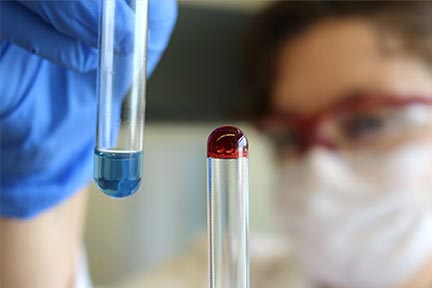Kepley BioSystems Inc, a North Carolina biotech has just published the results of their endotoxin testing research in the Marine Conservation and Sustainability section of Frontiers in Marine Science. With grant funding from the National Science Foundation, the team validated novel methods of Atlantic horseshoe crab aquaculture for sustainable production of a resource used to ensure the safety of human medicine, worldwide.
The article is entitled “Horseshoe Crab Aquaculture as a Sustainable Endotoxin Testing Source.” The work presents key findings with disruptive potential to supply materials for established pharmaceutical and biomedical device sterility testing while eliminating the annual capture of hundreds of thousands of animals from the wild. The research has also laid the groundwork for applying the unparalleled sensitivity of this resource to the detection of blood-borne bacterial infections in clinical medicine. Notably, many such cases share early symptoms and can occur in the course of treating Covid-19. Kepley BioSystems is continuing its efforts toward a rapid test to help distinguish between such causes.
“Modern medicine depends on a unique cell in horseshoe crab blood to test and ensure the safety of vaccines, medical devices, and implants for millions of patients every year,” stated senior scientist and lead author, Rachel Tinker-Kulberg. “We owe a huge debt to these creatures and their amazing immune system. Our new methods can not only safeguard the well-being of the horseshoe crabs in aquaculture, but industry scale-up and adoption would spare upwards of 90% of those captured to meet current demand in year one – and annually leave some 600,000 of them in the wild for many years thereafter.”
“Encouraged by meeting crucial milestones, we’re seeking further grants and eventually a commercial partner to develop a rapid gram-negative blood test to detect pathogens that can lead to sepsis, while carefully targeting antibiotics in an era of antimicrobial resistance,” said Anthony Dellinger, president of Kepley BioSystems. “With overlapping patient symptoms, detecting bacterial infections could help ensure timely treatment, especially given Covid-19 testing challenges in this pandemic wreaking havoc on society and investors.”
Sepsis was well established as the leading cause of untimely death before the current pandemic. These dynamics can exponentially increase the potential impact of sepsis wherever co-infections follow Covid-19 trends going forward. Given nearly 50 million cases and 11 million sepsis-related deaths per year before the novel coronavirus outbreak, early detection of the onset of sepsis is more important than ever; wherein, appropriate administration of antimicrobial treatment can reduce mortality rates by 7.6% per hour.
“Horseshoe Crab Aquaculture as a Sustainable Endotoxin Testing Source" is an open-access publication and can be read online at the Frontiers for Marine Science site, frontiersin.org.

Senior Kepley Scientist and lead author, Dr. Rachel Tinker-Kulberg, with recent publication.

Horseshoe crab hemolymph (“Blue Blood”) antimicrobial hemacyanin fraction (left); Limulus Amebocyte Lysate (LAL) fraction reacting with bacterially contaminated human blood (right).
About Frontiers in Marine Science:
Frontiers in Marine Science publishes rigorously peer-reviewed research that advances understanding of all aspects of the environment, biology, ecosystem functioning and human interactions with the oceans. Field Chief Editor Carlos M. Duarte at King Abdullah University of Science and Technology Thuwal is supported by an outstanding Editorial Board of international researchers. This multidisciplinary open-access journal is at the forefront of disseminating and communicating scientific knowledge and impactful discoveries to researchers, academics, policy makers and the public worldwide.
Additional Press and Articles:
- American Association for the Advancement of Science – EurekAlert!: “An Affordable and Fast Clinical Test that can Save Human Lives and Spares At-risk Population of Horseshoe Crabs.”
- LabPulse: “Horseshoe Crab 'Farming' Preserves Species, Makes Blood Test Possible.”
- Genetic Engineering and Biotechnology News: “New Method for Sustainable Harvesting of Horseshoe Crabs for Limulus Amebocyte Lysate”
- Frontiers Science News: “An Inexpensive and Fast Clinical Test that can Save Human Lives and Spares At-risk Populations of Horseshoe Crabs.”
- New Atlas: “Farmed Horseshoe Crabs Could Help Fight Sepsis.”

